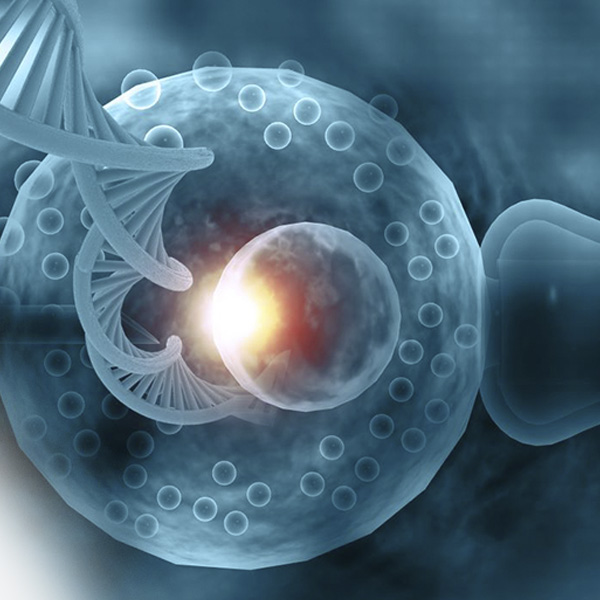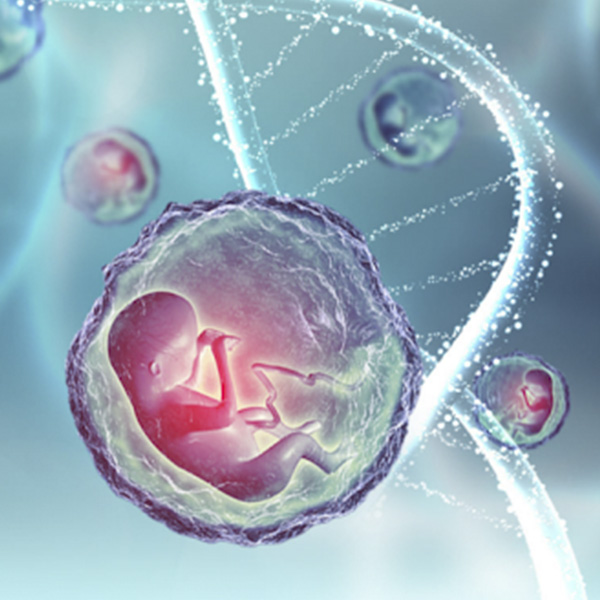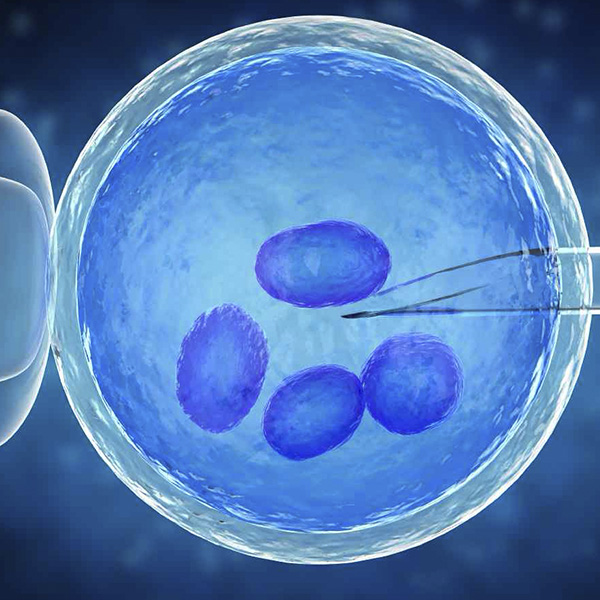Who Should Undergo Preimplantation Genetic Testing?
Preimplantation genetic testing is generally recommended in the following cases:

Women more than 37 years of age

Women with a history of two or more miscarriages

History of multiple failed IVF cycles without a proper explanation

Women with a history of failed embryo implantation

Women with unexplained infertility

Family history of genetic or chromosomal abnormalities
At Aksigen IVF, our skilled fertility specialists will evaluate you and your partner thoroughly to determine if you are the right candidate for the procedure.
Our experienced and trained embryologists and medical staff will ensure safe and accurate preimplantation genetic testing to increase your chances of a successful pregnancy and reduce the chances of the baby being born with genetic abnormalities.
What Are the Different Types of Preimplantation Genetic Testing?
The different types of preimplantation genetic testing include:
1. PGT-A
PGT-A (Preimplantation Genetic Testing for Aneuploidy) was previously called Preimplantation Genetic Screening (PGS).
This is a genetic test that helps screen all the 23 pairs of human chromosomes for an abnormal number of chromosomes (aneuploidy) to identify and transfer chromosomally normal (euploid) embryos.
An abnormal chromosomal number can lead to an unsuccessful pregnancy or a baby born with genetic disorders like Turner’s syndrome or Down’s syndrome.
2. PGT-M
PGT-M (Preimplantation Genetic Testing for Monogenic Disorders) was previously called Preimplantation Genetic Diagnosis (PGD).
In this procedure, embryos of couples who are at an increased risk of transmitting genetic disorders due to single gene mutations are examined.
Examples of such genetic disorders include beta-thalassemia, sickle cell anemia, Huntington’s disease, cystic fibrosis, etc.
3. PGT-SR
PGT-SR (Preimplantation Genetic Testing for Structural Rearrangements) was previously called Preimplantation Genetic Diagnosis for Chromosomal Translocation.
This technique helps differentiate between embryos having proper genetic material and embryos having missing or additional genetic material due to rearrangement, inversion, or translocation.
This procedure reduces the chances of the baby having an imbalanced structural defect that could lead to a miscarriage.
What Are the Benefits of Preimplantation Genetic Testing?
Preimplantation genetic testing has several benefits, which include the following:

Reduces risk of passing genetic diseases to children

Reduces risk of miscarriage

Ensures a healthy embryo and reduces uncertainty regarding the quality of the embryo selected

Improves implantation and pregnancy chances even if a single embryo is transferred

Improves success rates of IVF treatments

Prevents genetic diseases from being passed on to the baby

Reduces risk of complications like preterm birth, low birth weight, and multiple pregnancies

Reduces the need to terminate pregnancy after unfavorable prenatal diagnosis
How to Prepare for Preimplantation Genetic Testing?
The first step is an initial consultation appointment with our experienced fertility specialist at Aksigen IVF.
The specialist will do a physical and pelvic examination for the female partner. The surgeon will also discuss the couple’s medical history, pregnancy history, sexual history, and family history, which includes a history of genetic disorders that run in the family.
Some diagnostic tests are suggested by the doctor before the couple begins with fertility treatments like IVF (in vitro fertilization) or ICSI (intracytoplasmic sperm injection). These tests help determine the general and uterine health of the female partner and the quality and quantity of sperm in the male partner.
The tests recommended generally include blood tests, vaginal ultrasound, hysteroscopy, ovarian reserve testing, sonhysterography, and screening for infectious diseases. The male partner needs to undergo a semen analysis. The doctor will then explain the fertility treatment procedure in detail, along with the need to undergo preimplantation genetic testing. You can discuss your concerns and queries with the doctor before proceeding with the treatment.
What is the Procedure for Preimplantation Genetic Testing?
The steps involved in the IVF or ICSI procedure required before preimplantation genetic testing are as follows:
 Ovarian stimulation: Fertility medications are provided to the female partner to stimulate her ovaries to produce multiple eggs.
Ovarian stimulation: Fertility medications are provided to the female partner to stimulate her ovaries to produce multiple eggs. Egg retrieval: Blood tests and ultrasounds help the doctor check the production development of eggs. Once the eggs become mature, a transvaginal ultrasound-guided, minimally-invasive procedure is performed to retrieve the female eggs from her ovaries.
Egg retrieval: Blood tests and ultrasounds help the doctor check the production development of eggs. Once the eggs become mature, a transvaginal ultrasound-guided, minimally-invasive procedure is performed to retrieve the female eggs from her ovaries. Fertilization: The retrieved female eggs are then fertilized by the male sperm in a laboratory through IVF, where eggs and sperm are combined in a cultured dish, or ICSI, which is a modified type of IVF involving the injection of a single male sperm into the female egg for fertilization. This process will lead to the formation of embryos.
Fertilization: The retrieved female eggs are then fertilized by the male sperm in a laboratory through IVF, where eggs and sperm are combined in a cultured dish, or ICSI, which is a modified type of IVF involving the injection of a single male sperm into the female egg for fertilization. This process will lead to the formation of embryos. Embryo culture: The fertilized eggs (embryos) are then cultured in a controlled environment usually for about five to six days, enabling their development to reach the blastocyst stage.
Embryo culture: The fertilized eggs (embryos) are then cultured in a controlled environment usually for about five to six days, enabling their development to reach the blastocyst stage.
A blastocyst is usually made of 100 to 150 cells. From this stage, the process of preimplantation genetic testing can be started. This procedure involves two main steps, which are as follows:
1. Embryo biopsy
A small number of cells from the embryo in its blastocyst stage are carefully removed and sent for genetic testing. This process is known as biopsy.
Highly skilled laboratory technicians and professionals need to perform this procedure to ensure accuracy.
The results of this test arrive after about one to two weeks, and may even take up to two months in case of complex genetic conditions needing advanced diagnostic techniques. Meanwhile, the blastocysts will be frozen (cryopreserved) on individually numbered straws following the biopsy.
2. Genetic analysis
The biopsied cells will undergo genetic testing to identify specific genetic abnormalities or mutations, as well as check their chromosomal makeup.
Different techniques, such as polymerase chain reaction (PCR), next-generation sequencing (NGS), fluorescence in situ hybridization (FISH), or comparative genomic hybridization (CGH), may be used depending on the type of preimplantation genetic test being performed.
After the results of the biopsy arrive, the following steps will be performed to complete the fertility treatment to achieve pregnancy:
 Embryo selection: Depending on the results of the preimplantation genetic testing, embryos that are identified to be chromosomally normal and free from specific genetic mutations or abnormalities are selected for transfer to the female uterus.
Embryo selection: Depending on the results of the preimplantation genetic testing, embryos that are identified to be chromosomally normal and free from specific genetic mutations or abnormalities are selected for transfer to the female uterus. Embryo transfer: The selected embryos are transferred to the female uterus by a thin catheter inserted by the doctor through the cervix of the woman.
Embryo transfer: The selected embryos are transferred to the female uterus by a thin catheter inserted by the doctor through the cervix of the woman. Pregnancy testing: About 10 to 14 days after doing an embryo transfer, a pregnancy test is recommended to check if the embryo implanted successfully into the uterine lining to result in a pregnancy.
Pregnancy testing: About 10 to 14 days after doing an embryo transfer, a pregnancy test is recommended to check if the embryo implanted successfully into the uterine lining to result in a pregnancy.
Our medical staff at Aksigen IVF ensures personalized care and guidance throughout preimplantation genetic testing treatment in Mumbai, as well as ensures follow-up support and guidelines based on the treatment outcomes.
Talk to Our Fertility Experts
Book an appointment
FAQs
How is preimplantation genetic testing different from prenatal testing?

Preimplantation genetic testing is performed on embryos before implantation and prevents the transfer of embryos found with chromosomal or genetic problems into a woman’s uterus, whereas prenatal testing is done during pregnancy to detect genetic disorders in the baby.
Is preimplantation genetic testing necessary for all IVF cycles?

No, preimplantation genetic testing is optional and recommended based on a couple’s medical history, age, or specific genetic concerns.
Does preimplantation genetic testing improve the chances of pregnancy?

Yes, preimplantation genetic testing can improve success rates by identifying embryos with the best chances of implantation and reducing the risk of miscarriage.
Can preimplantation genetic testing guarantee a healthy baby?

While preimplantation genetic testing reduces the risk of genetic abnormalities, it cannot guarantee a healthy baby, as other factors like uterine environment and non-genetic conditions may affect pregnancy outcomes.
Is the embryo biopsy in preimplantation genetic testing harmful?

When performed by experienced professionals in reputed clinics like Aksigen IVF, embryo biopsy is generally safe and does not affect embryo viability much.
Couldn‘t find the answer to a question you have? 




























